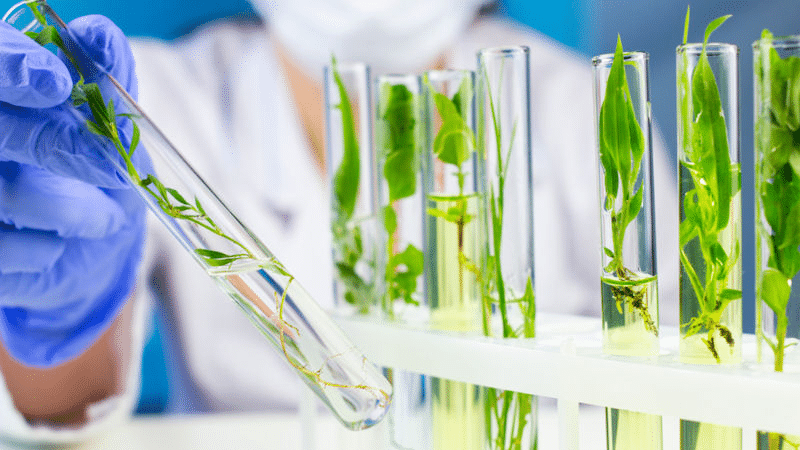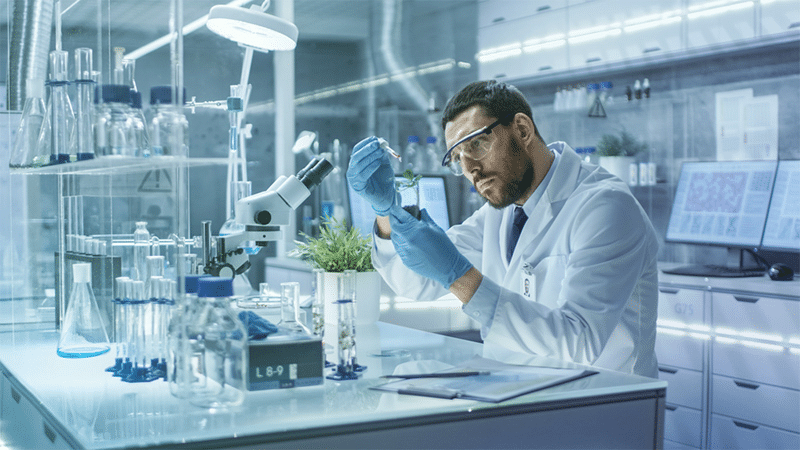Biotherapeutics research is among the fastest-growing segments in the pharmaceutical industry and accounts for nearly one half of new drug approvals. Unlike chemically-synthesized small molecule medicines, biotherapeutic medicines are made with living systems.
Biotherapeutics has become an integral part of modern medicine and is increasingly used to treat and prevent serious diseases, illnesses or infections. They have been highly effective in the treatment of a range of conditions — from cancer to diabetes to rheumatoid arthritis and more.

Biotherapeutics Defined
According to the US National Library of Medicine National Institutes of Health, biotherapeutics are “antibody-drug cell therapy products where the active substance is extracted or produced from a biological source.” Biotherapeutic products include proteins and hormones, monoclonal antibodies, cytokines, antibodies, gene cell therapy products, vaccines, stem cell therapies, and more.
Many biotherapeutic molecules are considered a rapidly growing drug class for anti-immunity, oncology, and inflammatory diseases. Monoclonal antibodies act in biotherapeutic processes through apoptosis in cells that block target molecular functions.
The World Health Organization states that biotherapeutic technology “describes biological processes that have been engineered.” A typical application for biotechnology is the preparation of biological products from genetically engineered cells and antibodies. The cells and antibodies were initially extracted from tissues. However, by including recombinant DNA technology, high concentrated material preparation changed how the biotherapeutic field and encompassing therapeutic materials were produced.

Biotherapeutic products produced from biological means, including recombinant DNA technology like growth factors, provide advancement in therapeutic antibodies and proteins. They have shown successful records of treating life-threatening or chronic diseases. Many patients have recently seen an increase in access to biotherapeutic products. However, technical issues from the immunogenicity of substances in specific manufacturing conditions hinder consideration.
Biotherapeutic Applications in Cancer
Biotherapeutic medicines have helped more than 350 million patients around the world — including making major strides in fighting cancer.
Biotherapeutic medicines play a role in the discovery and development of biomarkers, which in turn help predict the risk of cancer, assist diagnosis and inform treatment plans, according to the International Federation of Pharmaceutical Manufacturers & Association.
In cancer biotherapeutics, materials must be chosen, processed, and engineered to treat cancer. Immunotherapy products can be produced as cancer-killing viruses, antibody therapy, and immune cell therapies. Each therapy contains specific antibodies and mechanisms that are highly potent and targeted in cancer biotherapeutics.
According to an article from BioCanRX, biotherapeutics are “highly potent and activate the immune system to fight cancer.” Many biotherapeutics target cancer cells without harming healthy cells. These specifically targeted use cases result in more effective concentration with less harmful side effects. Numerous biotherapies have provided remission for patients who have run out of treatment options in many early clinical trials.
Research has shown that immune-based therapies require strategies to address challenges in biotherapeutics. Fortunately, there could be potential for immune-based biotherapeutics to aid in cancer treatment. However, the following must be addressed:
- A direction for the immune system to recognize cancer tumors
- The production of a highly potent reaction to the tumor
- Overcoming suppression as a result of a tumor
The Future of Biotherapeutics
Biotherapeutics is among the fastest-growing sectors of the pharmaceutical industry.

Total revenue for restorative materials produced using biological technology has recently crossed $163 billion. Annual growth has surpassed 8 percent, double the growth of conventional pharmaceuticals, according to an article fromThe Pharma Letter.
The safety of biotherapeutic products and their ability to treat serious diseases are a critical reason for such rapid pharmaceutical growth.
Other contributing factors include technological advancement in related fields that create libraries of drug targets. General advancement and improvement in understanding disease have also fueled the growth of biotherapeutic products. Monoclonal antibodies in human insulin have made biotherapeutic products useful in pharmaceutical markets.
Biotech applications have increased significantly since 1995, and over 200 approved drugs have made their way to the market due to biotherapeutics. Over 1,500 biotherapeutic antibody drugs have come through the pipeline to be approved.
There is still more promising growth ahead for the pharmaceutical and biotherapeutic industries. Developments in immunotherapies, antibody-drug conjugates, and gene cell therapies are all expected to grow alongside biologics over the next five years. Personalized medicine and regenerative cell therapy are also developing areas for biotherapeutics. Advancing medicines from gene cell therapies and antibody-drug conjugates offer promise for disease remission and regenerative medicine.








